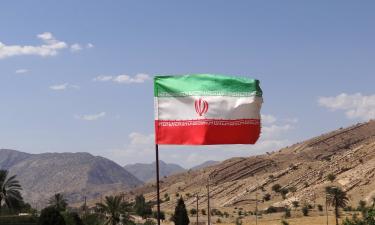Argentina Misses Deadline as IMF Hardens Position
The Argentine government Tuesday decided not to pay a $2.9bn loan payment owed to the IMF, as Washington insists on policies that could block reactivation
US and Latin America support Argentina, but Europe does not cede. France Telecom leaves the country.
Argentine authorities announced Tuesday evening that the country would not repay $2.9bn to the International Monetary Fund after the organization based in Washington rejected a Letter of Intention issued by Buenos Aires last week to wrap up a three year deal. The South American country says IMF requirements are excessive and could block economy's reactivation process. Therefore, Argentina may default on its debt to multilateral loan institutions in 30 days if does not reach to an agreement with them.
Argentina had already suspended payments to private debt holders in January 2002 and is preparing a new offer on them with a quittance of up to 80 per cent. However, the South American nation kept on paying to the IMF and other institutions as the World Bank and the Inter-American Bank of Development. As it missed the Tuesday deadline, this is nothing less than a defaulted.
On Tuesday morning, Alberto Fernandez, Argentina's cabinet chief, said: "We are not going to pay with reserves [from the central bank] because objectively we are not in a position to do so". Fernandez also added that the IMF knew that, as it was country's definitive position until both parties find a solution to the controversies.
Firstly, the IMF wants Argentina to maintain a budget surplus of more than 3% during each of the next three years to meet foreign obligations. Argentina, in turn, agreed to keep it at that level for 2004 only, but wants to redefine figures for 2005 and 2006.
Secondly, the IMF has been putting pressure over the government to compensate banks for their financial losses after the overturn of the Convertibility Law that used to pegged the peso (local currency) to the US dollar.
Thirdly, the IMF has been lobbying over Argentina's administration to increase public services fares in order to satisfy demands from its European partners. The governments of France, Italy, UK, Spain and Germany support companies with investments in Argentina that handle public services privatized during the nineties. Such corporations, as British Gas, ENDESA, France Telecom, Camuzzi, among others, say they have been affected by currency devaluation and claim for a raise on fares to equilibrate accounts.
President Kirchner, in turn, asked the IMF not to lobby on behalf of such companies, as asked its officials "not to threat with chaos and the seven plagues". Also, asked the population to "trust on ourselves", to take the country out of the crisis.
On Monday, Kirchner received the support of Roger Noriega, US main observer on Latin American affairs. After announcing default, Kirchner was also given a strong support from the National Congress, opposition leaders and the Chilean President Ricardo Lagos, who expressed his solidarity with Argentina.
Now, Argentina has 30 days to close a new deal and meet its obligations. If misses October's deadline will be declared officially in default and will be placed in the ranks of pariah states such as Liberia and Sudan.
France Telecom leaves Argentina
The French National Telecommunications Corporation decided to sell its 48 per cent share of Telecom Argentina, country's second main operator. The company based its decision as part of its full restructuring plan on its investments outside France and the UK, and cut out debts for up to $78.4bn.
Telecom's operation in Argentina has debts for up to $3.2bn, as controls half of the company. The other 50 percent share belongs to Italy Telecom, which will remain in Argentina. If the operation is approved by both the Argentina and the French Governments, the local financial company Werthein Group, will take over French share.
Subscribe to Pravda.Ru Telegram channel, Facebook, RSS!




